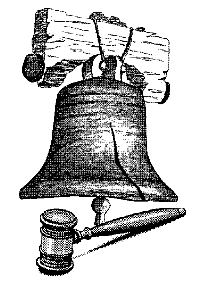Today the New York State Senate killed a measure to grant marriage rights to same-sex couples. In a vote of 38-24, the state senate rejected a proposal that would have granted equality to a large population within New York and dashed the hopes of many loving couples. This bill, already passed twice by the Assembly, is dead for at least this year but is expected to brought forward again in the future.
Predictably, the main line of attack against granting same-sex marriage was religious in nature. Since no reputable medical, psychological, or economic organization has adduced any reasons why same-sex marriage should not be granted, this is perhaps the only available argument. As such, it bears scrutiny in the context of today's vote.
The opposition to the measure was led by Senator Ruben Diaz, Sr., a Pentacostal minister from New York City. In his opening remarks, Diaz implored legislators to "remember your values -- remember you stand for traditional values, family values, moral values." Such misplaced rhetoric is truly offensive and reveals Ruben's profound incapacity to understand the effects of his actions on the gay community. Nothing about same-sex marriage threatens family or morality. Thus, Ruben's comments are also disappointing because they continue his tragic trend of leveling baseless accusations and showing a distinct lack of compassion toward an minority seeking equal treatment. Richard Barnes, executive director of the New York State Catholic Conference, also commented, saying, “While the Catholic Church rejects unjust discrimination against homosexual men and women, there is no question that marriage by its nature is the union of one man and one woman.”
This unfortunate myopia demonstrates the duplicitous attempts of religious leaders to cast themselves as both opponents of gay marriage and as egalitarian defenders of the downtrodden. In reality, however, the church's continuing crusade against the gay community is better understood as clear and unequivocal discrimination. That the church believes it has strong reasons for its stance only offers an explanation for its position -- it does not change the fact the real effect of its actions is to derogate and subordinate gay people. The definition of discriminate is "to make an adverse distinction with regard to" or "to distinguish unfavourably from others." Declaring that one group is not entitled to the same rights as another -- or, for that matter, arguing that their lifestyle is inherently worthy of condemnation -- is clearly within this definition. For religious leaders to argue to the contrary is unambiguously and categorically false.
Rather, a more appropriate analysis would be to say that religious leaders believe that they have the right to discriminate -- a right that they claim is granted to them by their religious traditions (e.g. the Bible, the Quoran, etc.). The problem with this, of course, is that the history and Constitution of this nation overwhelmingly reject the notion that any group possesses some natural right to discriminate against another. The mandate of equality under the law is not modified or rescinded simply because the discussion turns to religion -- a fact that religious leaders themselves are quick to trumpet whenever their interests are threatened. When Congress recently passed legislation classifying violence related on sexual orientation as hate crimes, religious leaders voiced their displeasure over the mere possibility that their freedom of speech might be infringed.
Contrary to the claims of many religious leaders, the laws of the United States are not rooted in Christianity -- or, in fact, in any other particular religion. That religious dogma and civil laws sometimes possess similarities cannot be doubted, but this is more attributable to the historical evolution of moral and ethical thought rather than some inherent interdependence. The intellectual underpinnings of law such as theories of ethics, morality, and justice, often grew out of religious musings. This common origin, however, by no means gives religion a monopoly on moral or legal thought. In Reynolds v. United States, the Supreme Court stated that "to permit [bigamy based on a religious duty] would be to make the professed doctrines of religious belief superior to the law of the land, and in effect to permit every citizen to become a law unto himself." Such a notion was firmly rejected by the court as inconsistent with the freedom and liberties granted to people of this nation, and it is equally inappropriate to maintain that religious beliefs should become the law of the land.
One should also hesitate to apply religious laws because -- even among the religious -- there is severe disagreement about everything from the correct teachings to the proper principles. People around the world subscribe to many different systems; Judaism, Christianity, Islam, Buddhism, and Hinduism are but a few of the major faiths found throughout the globe. From Animists to Zoroastrians, each has different beliefs and values which are often unique. Even within each particular sect there is a wide spectrum of beliefs and practices. State Senator Eric Adams, a Brooklyn Democrat who supports same-sex marriage, stated, “When I walk through these doors, my Bible stays out." His beliefs are obviously quite different from those of many Christian fundamentalists -- even though they are based on the same compilation of writings and teachings. In fact, there are dozens of different translations of the Bible in the English language alone. Given the practice of carefully parsing the text of religious documents, even small differences in each version are likely have significant consequences. The diversity within the broad umbrella of religion is nothing short of astounding.
Yet many religious leaders maintain that the religious rules to which they adhere are the one true set of laws that should prevail. For instance, Rabbi Yisroel Dovid Weiss, who traveled to Albany before the vote on same-sex marriage, admonished the State Senate “that the world belongs to the Almighty, and [the Senators] have to reckon with his rules and his law.” When one realizes that such declarations are almost always followed by religious directives (Rabbi Weiss did not just leave and the legislators decide for themselves what the laws of the "Almighty" said to do), comments of this sort are reduced to little more that religious threats -- thinly veiled attempts to coerce democratically elected leaders into opposing propositions that do not conform with religious teachings.
But why is this a problem? Much of religion, after all, is concerned with commonly held values such as love, kindness, honesty, and reciprocity. Viewed in that light, it might seem beneficial to allow religion to shape our laws. Serious complications arise, however, because human beings are -- as recognized by most religions themselves -- imperfect. Human beings (a category that includes religious leaders) are susceptible to mistake, coercion, bigotry and a long list of other vices. Much of our history has been spent overcoming these shortfalls, a task that is nowhere near finished. Because the people who write, read, teach, and lead in religious circles are human, they are subject to the same fallibility as all other people.
Unfortunately, many people have a tendency to confuse the allegedly pure teachings of religion with the very human aspect -- granting some religious leaders broad powers that they are neither worthy nor capable of wielding. This situation has been seen throughout history, and has led to countless atrocities being committed in the name of the noblest purposes; an embarrassingly short summary includes the Crusades, the Spanish Inquisition, persecution of scientists, slavery, male chauvinism, the Salem witch trails, genocide, and opposition to interracial marriage.
In Loving v. Virginia, the Supreme Court case that recognized the right to marriage, even the trial judge who convicted the Lovings stated that, "Almighty God created the races white, black, yellow, malay and red, and he placed them on separate continents. And but for the interference with his arrangement there would be no cause for such marriages. The fact that he separated the races shows that he did not intend for the races to mix." Furthermore, many argued that interracial unions were "evil" and "unnatural." This line of thinking has been born again today in the debate over same-sex marriage. More recently, the Pope claimed that condoms would actually exacerbate the HIV/AIDS crisis in Africa -- a shockingly irresponsible move that quite literally puts thousands of lives at risk and promotes the spread of a devastating disease.
None of this is to say that religion is inherently bad -- it most certainly is not. A humble, honest, and reverential search for spiritual or divine meaning can certainly enrich the life of the seeker (and perhaps the lives of others) in myriad ways. Yet while religion certainly has many valuable aspects, ignoring its shortcomings and denying that commonplace religious doctrine can be wrong or misinterpreted can also be extremely harmful. We should bear in mind the dangers of refusing to think about religion. Tradition and custom are powerful forces in society, and they have helped us to maintain many practices which are beneficial. They have also, however, been the historical vehicle through which to oppress minorities. Our Founding Fathers built a country consecrated to liberty, not religion, and we would do well to observe the safeguards that they put in place -- measures meant to guard against the unfair concentration of power and to prevent the formation of a monarchy, autocracy, or theocracy.



